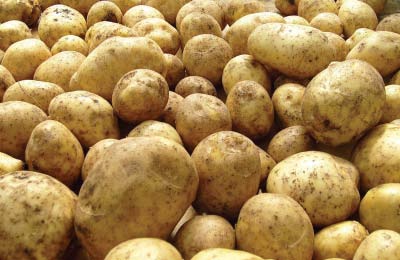New research led by Neda Akhavan, an assistant professor in the Department of Kinesiology and Nutrition Sciences at UNLV, suggests that potatoes may offer significant cardiovascular benefits for adults with Type 2 diabetes, challenging the vegetable’s often-negative reputation among dieters.
Akhavan’s study, which was recently presented to the Alliance for Potato Research and Education, found that consuming baked potatoes, when prepared correctly, could help lower blood sugar levels and reduce waistlines. “I like doing research on food items that are highly stigmatized in the nutrition world,” Akhavan said. “Most people associate the potato as something that is mostly fried or has a lot of fat, and we wanted to shine a light on how a potato – when prepared properly – can be both functional and healthy.”
The study involved 24 participants with well-controlled Type 2 diabetes. Each participant was given a 100g serving of baked potato with the skin, containing 20 grams of carbohydrates, to eat daily as a snack or side dish. A control group was provided with a similar portion of white rice. The study, which lasted 12 weeks, measured changes in glycemic control and cardiometabolic health.
Participants who consumed potatoes showed a modest decrease in fasting blood glucose levels, improvements in body composition, waist circumference, and a reduction in resting heart rate. “The results from our study provide evidence that white potatoes can be healthfully incorporated in the diet of individuals with Type 2 diabetes when substituted for other foods with a high glycemic load, such as long-grain white rice,” Akhavan noted. “Additionally, there were no harmful effects on measured health outcomes, and some cardiometabolic health benefits were shown, which aligned with what we expected to see. Therefore, diabetics should not shy away from potatoes.”
Akhavan emphasized the importance of moderation and preparation methods. “Potatoes are a very versatile food and can be eaten with most types of cuisines, but you want to make sure to incorporate them into a well-rounded diet,” she said. She also highlighted the benefits of potato skins, which are rich in dietary potassium and resistant starch, known to improve glucose control and satiety.
Akhavan plans to expand the study to include a larger and more diverse participant population and to explore the effects of potato consumption within a Mediterranean dietary pattern. “A lot of people are shocked to learn that a potato has a higher level of potassium than a banana,” she added. “Believe it or not, a baked potato is one of the most satiating foods consumed within the western diet. And, when it is consumed baked, it increases our ability to feel fuller throughout the day.”











